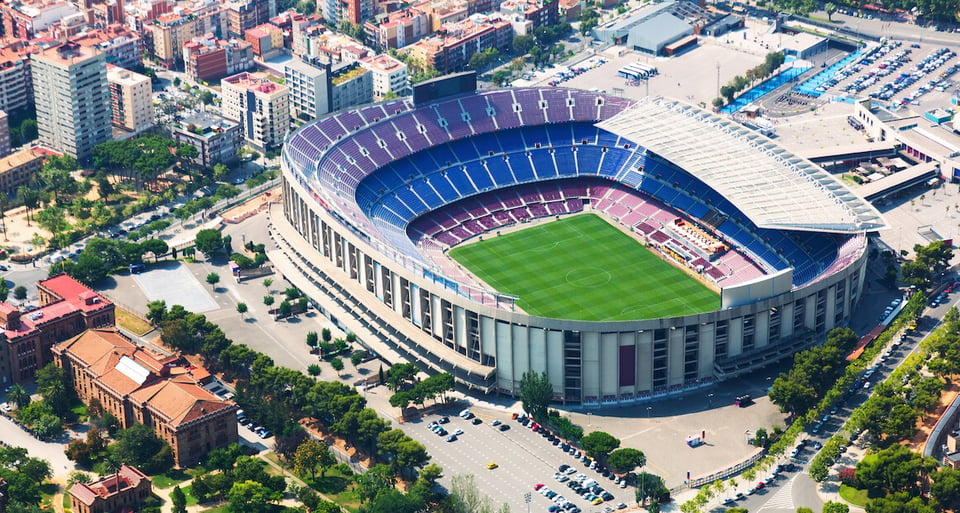When fans attend an event at a sports or entertainment venue, their expectations extend beyond the basics of safe, clean, comfortable facilities. Fans look for high-tech amenities, an interactive experience, and a high level of engagement.
To deliver on these expectations, venue operations management teams rely on stadium analytics to take the guesswork out of creating a user experience that will bring fans back again and again. But what is stadium analytics? It’s the practice of collecting and analyzing data from various touchpoints—such as ticketing systems, concessions, Wi-Fi usage, and crowd movement—to optimize operations, enhance the fan experience, and increase revenue.
With data analytics now a fundamental part of venue operations, it’s important to understand how this information provides support across all facets of the venue.
How Stadium Analytics Help Operations Management Give the Fans What They Want
Fans no longer show up to sporting events and performances just to watch the main event. They are anticipating a more holistic experience that begins before they even reach the venue.
Gathering and tracking data—from ticketing to incident response to post-event social media feedback—gives operations managers the insight needed to deliver efficient, safe, memorable, and profitable events.
Here are a few of the key ways analytics is used to meet the needs of guests, maintain a high-quality venue, and maximize profitability.
Understand fan behavior.
Data analytics gives operations teams a direct line of sight into guest behavior, allowing the venue staff to adjust and adapt elements as required to deliver an exceptional experience.
Analytics tools can track and analyze activities within the stadium in real time, such as traffic flow, bottlenecks, concession preferences, and restroom utilization.
This data helps management understand where guests prefer to purchase food and merchandise, how guests navigate the venue, and what obstacles are impacting traffic. This knowledge enables operations staff to modify access points, signage, and staffing to improve flow and reduce congestion.
For example, using analytics, venue staff can anticipate the need for more women’s restrooms than men’s during a Harry Styles concert and convert facility signage and restroom supplies accordingly.
Optimize concessions and merchandise.
Food and souvenirs are huge revenue generators, so venues are always looking for ways to optimize selling opportunities.
Analytics can help identify popular food and drink items, top-selling merchandise, and peak times and locations for sales.
This information allows stadium management to adjust inventory levels, pricing strategies, and staffing to meet demand, reduce wait times, and enhance overall guest satisfaction.
In practice, this could mean redirecting staff to open an additional concession or merchandise stand when your analytics tool indicates that a particular venue entry point is exceptionally busy on a given day.
Provide real-time feedback and issue resolution.
The ability to act quickly is essential, both for ensuring fans have an enjoyable experience and for maintaining security.
Analytics tools that provide sentiment analysis and social media monitoring give operations real-time actionable feedback during events. For example, social media posts complaining about warm beer, an overflowing toilet, or a video of an inebriated guest threatening concession staff can prompt immediate action to resolve—or remove—the issue.
Identifying and addressing concerns, complaints, and security issues quickly improves service quality, helps problems get resolved promptly, and demonstrates that management is responsive to fan needs and safety.
One 24/7 Software customer shared an example of the power of social media monitoring in action. The venue’s security team received intelligence through social media that a group of protestors intended to congregate at a specific facility entrance. Additional reports showed that an unrelated group was also planning a protest during the same event.
Using this information, venue management and security were able to prevent both groups from protesting in the same area, which would have caused an extreme disruption for the guests arriving at the actual event.
Predict maintenance needs before they’re needed.
Maintenance issues (such as damaged seating, non-functioning restrooms, and faulty HVAC systems) create negative guest experiences that could hurt your facility’s reputation, prevent repeat business, and decrease revenue.
A computerized maintenance management system (CMMS) provides analytics that can be used to monitor the condition of stadium facilities and equipment in real time, predicting potential failures and identifying maintenance needs before they occur.
For example, stadium management teams can use a CMMS to schedule regular restroom inspections and maintenance. If an issue is discovered during an inspection, the CMMS can automatically generate work orders and assign tasks to maintenance staff. Using analytics to take a proactive approach to maintenance helps prevent unexpected restroom closures or malfunctions during events and enhances the guest experience by providing clean, functional restrooms.
Additionally, the CMMS can track maintenance activities and performance metrics over time, allowing the stadium management team to identify trends, optimize maintenance schedules, and allocate resources more efficiently. This data-driven approach enables continuous improvement in guest satisfaction and facility management practices.
Enhance fan engagement.
When fans show up at the stadium on game day, they are expecting more than a sporting event; they want an immersive, personalized experience.
The right analytics tools can provide insights to help stadium managers develop targeted marketing campaigns, interactive guest experiences, and engagement strategies to connect with fans before, during, and after the event.
Before an event, data including ticket purchase history, location information, social media interactions, and verified preferences are used to provide customized promotions for tickets, merchandise, or additional events.
During an event, the guest experience is optimized through interactive apps, real-time event updates, player stats, behind-the-scenes content, and even augmented reality activities and experiences.
After an event, stadium staff use real-time data to direct the flow of traffic toward the exits, respond to guest requests, and gather additional feedback from fans to identify what hit the mark and where improvements are needed.
Maximize revenue and profitability.
Stadium analytics provides unique opportunities to maximize profitability by introducing new products based on fan preferences, optimizing sales channels to align with demographics, and adjusting pricing strategies to match demand.
Two of the most effective areas to optimize for profitability are ticketing and concession sales.
Analytics software can analyze historical data such as the season, weather forecasts, the day of the week, and who the opposing team is to set ticket prices for a specific event and maximize ticket sales.
Similarly, analytics software can identify the most popular concession items sold during particular types of events and suggest pricing and upselling opportunities to maximize revenue.
Empower Your Operations Team with Stadium Analytics
Stadium analytics software is an essential factor in delivering the in-venue experience today’s fans demand.
Leveraging data collected from fan behavior, direct guest feedback, IoT monitoring, and staff input helps stadium operations teams create a more personalized and immersive fan experience that increases attendance, purchases, and revenue.
Analytics also provides insight into the effectiveness of your optimization initiatives by tracking metrics such as engagement, conversion rates, and customer satisfaction scores. This creates a feedback loop that allows operations teams to continually refine and improve fan engagement strategies over time.
Want to learn more about harnessing the power of stadium analytics to optimize fan experience and maximize revenue? Check out our on-demand webinar: “How Analytics Are Transforming Venue Operations and Facilities Management”.





